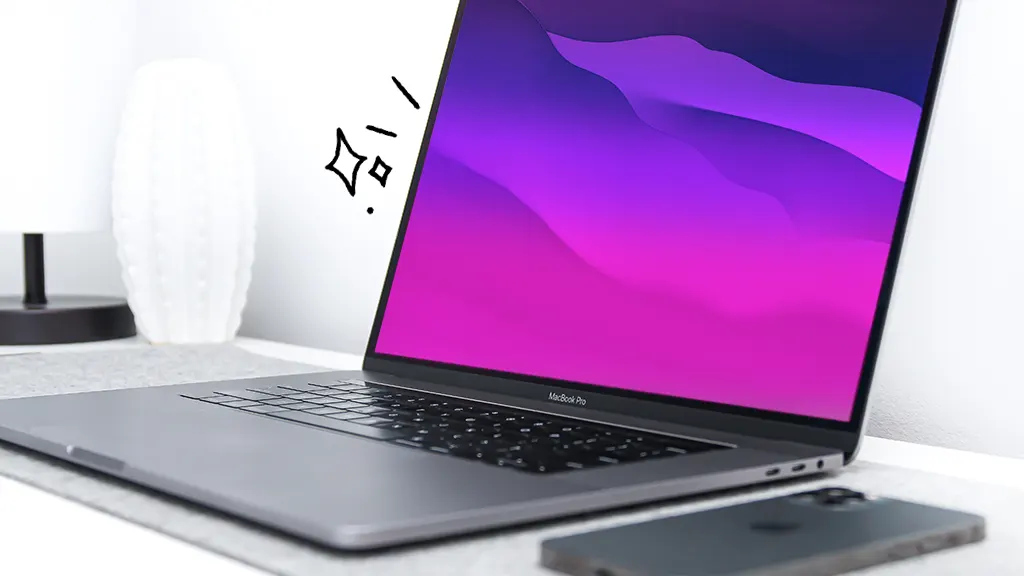How long do MacBooks last?

Whether you're streaming movies, writing college papers, or running a small business, your MacBook® is an essential part of your everyday life. It's an investment too—most of these devices start at about $1,000. So whether you bought your laptop last week or 3 years ago, you're probably wondering how long it'll last.
At Asurion, our experts help millions of people fix and protect their devices every day—from speeding up your slow laptop to resetting your Mac® to its factory settings. Here's everything you need to know about the lifespan of your MacBook.
How long do MacBooks last?
The average laptop lasts 3 to 8 years, according to our experts. Why the broad range? There are a number of factors that affect the average Mac lifespan, from how you care for your laptop to how you use it. We'll break them down for you.
Storage
Storage refers to your MacBook laptop's hard drive, which houses things like your operating system, applications, and files. Most laptops have at least 256 GB of storage space. If you mostly watch movies online, send emails, and browse the web, this is plenty. But if you have a lot of hi-res photos, movies and TV series, or games you'd like to save, you'll quickly run out of space, forcing you to juggle what to store locally and what to offload to the cloud or an external drive. These are only temporary fixes. Eventually, you'll need to upgrade to a new Mac with more space.
Battery life
In general, a MacBook comes with a reliable battery that lasts a long time. But they don't last forever. The battery in your laptop has a limited number of charge cycles—about 500—before it wears out. A charge cycle refers to the number of times a battery can use its stored power and then recharge at full capacity. The more often you drain your MacBook battery, the fewer cycles you have left.
Here are some easy ways to keep your battery going for as long as possible:
- Put your MacBook in sleep mode when you're not using it, and shut it down at night. Quit apps and close background programs when you aren't using them—they can drain the battery.
- When you aren't using your MacBook, turn off Wi-Fi and Bluetooth®, and lower the screen brightness.
- To learn more, read our guide to the signs your laptop needs a new battery.

You can’t work when your computer doesn’t want to
Get it repaired fast at one of our stores. Just stop in or make an appointment⎯we'll handle the rest.
Software updates
Every year, Apple releases a new version of macOS® to make sure your laptop has the newest software and security patches. Updating your MacBook will help it work better and last longer, though it also requires more storage and processing power. You probably won't notice a difference after installing an update on a newer laptop, but an older Mac may not have the ability to properly run the update—and could slow down as a result.
Laptops that are 8 to 10 years old likely won't support macOS updates at all, leaving your computer vulnerable to viruses, security risks, and poor performance. You may also have trouble syncing an iPad® or iPhone® to it or running certain software. In this case, it's time to consider a new laptop.
How to make your MacBook last longer
There are lots of ways to take care of your Mac and extend its lifespan.
- Update your laptop as soon as Apple releases a new operating system.
- Shut down your computer before you go to bed.
- If you notice your laptop running slow, consider upgrading its storage space or random-access memory (RAM). For more information, read our guide to why your laptop is running slow—and how to fix it.
- Be wary of malware and viruses as well as phishing scams.
- Keep moisture and liquids away from your laptop. Accidents happen, so bookmark our step-by-step guide on what to do if you spill water on your MacBook.
- Store your laptop in a clean, open area, away from dust and pet hair; both can get trapped in your MacBook laptop's internal fan and stop it from working.
- Invest in an external hard drive, especially if you download or work with large files. You'll free up space on your MacBook while ensuring your data is saved.
- Keep an eye on your laptop battery. If it starts getting hot—from overuse or a blocked vent—shut down your MacBook and make sure air can flow under it. If you suspect your vents or ports are blocked, a deep-clean for your MacBook can help it run as it should again.
When should I replace my MacBook?
To help you look for signs it's time to replace your Mac, read our guide to repairing vs. replacing your laptop. You can also bring your computer to an expert at your nearest uBreakiFix® by Asurion store to perform a free computer diagnostic to see what’s needed to keep your MacBook running at its best, for as long as possible.
If you do decide it's time to get a new MacBook, make sure it's protected. The Asurion Home+ protection plan covers thousands of eligible devices in your home—from laptops to TVs to smart thermostats and locks—plus provides 24/7 live support from trusted experts for your tech questions. To learn more about MacBook protection plans, visit asurion.com/homeplus.
The Asurion® trademarks and logos are the property of Asurion, LLC. All rights reserved. All other trademarks are the property of their respective owners. Asurion is not affiliated with, sponsored by, or endorsed by any of the respective owners of the other trademarks appearing herein.
- SHARE THIS ARTICLE